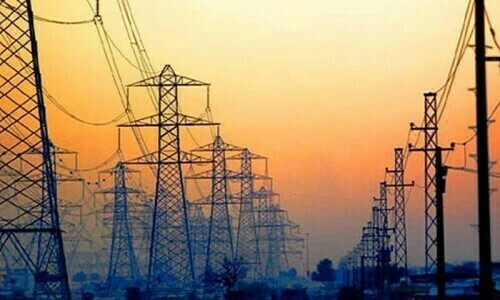THE withholding tax embodies no principles of taxation. For all practical purposes, it is an extractive practice that is devoid of equity and just there to raise so-called tax revenues.
However, the principles of taxation, as they manifested in the measures announced in the budget and subsequently approved from parliament, are the least controversial. What is controversial is the way the new taxes are being conceived and implemented.
As a rule, it’s the income or the consumption that is universally taxed. Also, just taxation is not supposed to be driven by spending.
Instead of putting the burden of failure on the shoulders of the FBR, the government is penalising those who are using the banking channel
No doubt, there are countless examples of arbitrary taxation, such as the medieval hearth tax, which was sort of a property tax. But they were no representative governments in the past; which is why they could afford arbitrary taxation policies.
The question is can the democratically elected PML-N government afford such arbitrary taxation measures like the current withholding tax of 0.3pc on all banking transactions, which will automatically increase to 0.6pc after September 30. Or is it making a farce of the principle of ‘no taxation without representation’?
But how come it is only the traders who have the courage to protest against this arbitrary tax, for doesn’t this withholding tax affect other low- and middle-income people of society as well? They include pensioners, widowers and ordinary savers, whose incomes are not taxable. All such citizens stand to lose 0.3pc of their hard-earned money if they withdraw or transfer an amount exceeding Rs50,000 on any day. These citizens are not part of the protests against this tax. They must be.
Then some banks have reportedly illegally and unjustly deducted the 0.3pc tax on all banking transactions, forgetting which ones were conducted by filers and by non-filers.
The 0.3pc withholding tax is arbitrary, unjustified and has no grounds in the principles of taxation.
Instead of putting the burden of failure on the shoulders of the Federal Bureau of Revenue (FBR) — which, according to a report by the tax reform commission, is collecting the bulk of taxes through withholding agents or voluntary payments — the government is penalising those who are using the banking channel.
No tax expert could tell definitively if this withholding tax is on income or on consumption. It looks more likely that the PML-N has found another unique source of easy tax collection, i.e. bank transactions. It would be better if the government withdraws this tax and instead focuses its energies on reforming the FBR.
It is the FBR’s responsibility to collect taxes from citizens who earn a taxable income. The government is not supposed to collect the taxes through banks that its own tax authority fails to collect.
Published in Dawn, Economic & Business, August 10th, 2015
On a mobile phone? Get the Dawn Mobile App: Apple Store | Google Play










































